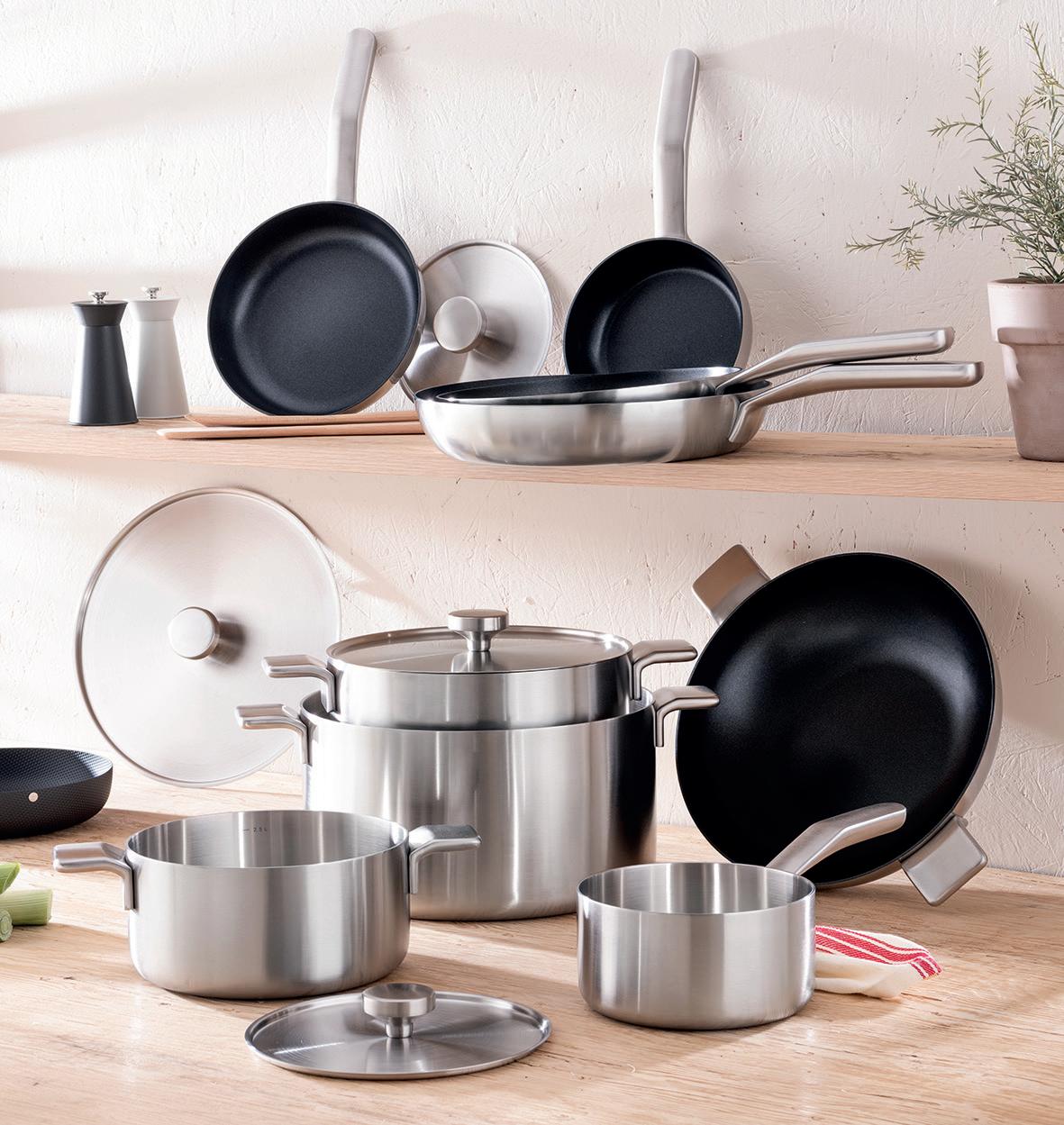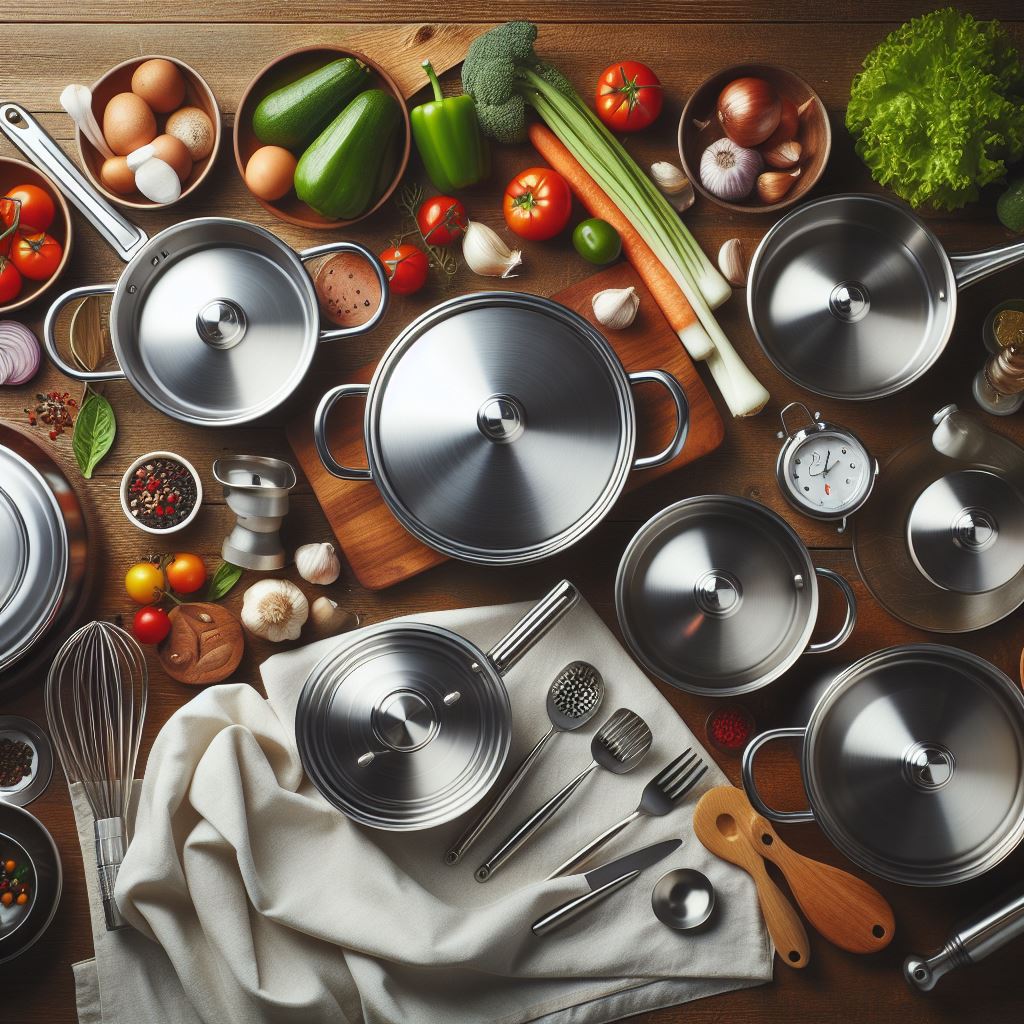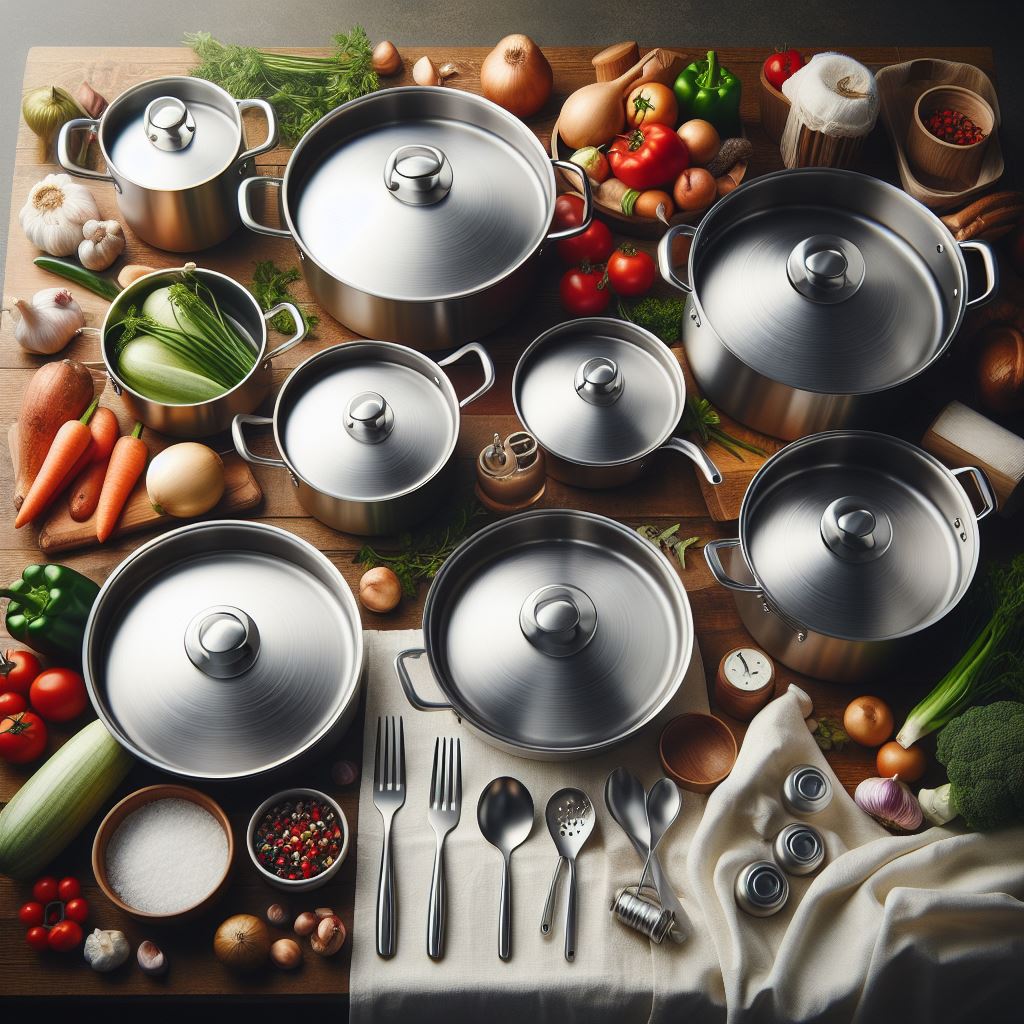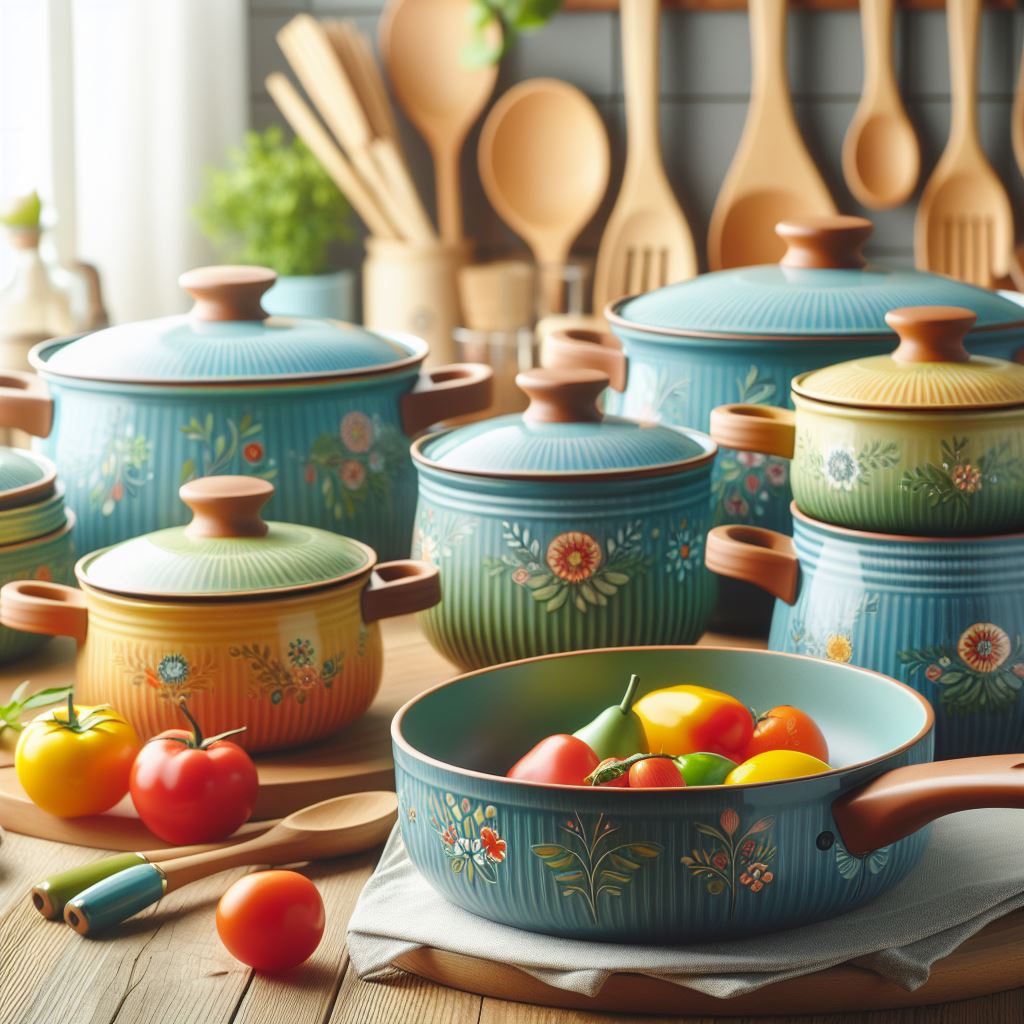Physical Address
304 North Cardinal St.
Dorchester Center, MA 02124

Aluminium cookware has not been banned in Europe. Rumors about such prohibition are unfounded and incorrect.
Understanding the kitchen equipment used in our daily lives is essential for maintaining a healthy lifestyle. While there are various materials from which cookware can be made, aluminium remains a popular choice due to its excellent heat conductivity and lightweight nature.
Despite circulating myths, it’s important to clarify that Europe has not imposed a ban on aluminium cookware. Consumers in Europe continue to have the freedom to choose aluminium pots and pans, alongside other options. For health-conscious individuals, this may raise questions about the safety and regulations surrounding materials in cookware, prompting a closer look at the standards set by European safety agencies. Ensuring that cookware meets these standards is part of a commitment to safe food preparation practices.

Welcome to the heart of the recent debate: the Aluminium Cookware Controversy. Rumours are swirling that European countries may be banning aluminium cookware. As we unravel this topic, we’ll look closely at what’s sparking these discussions and why this everyday kitchen staple is under fire.
News has spread like wildfire: aluminium cookware faces a potential ban in Europe. This decision would have a significant impact on kitchens across the continent. With health and safety at stake, the ban proposal has certainly rattled the cookware industry.
What’s prompting such a drastic measure? The answer lies in the health concerns associated with aluminium. Research suggests that aluminium exposure may pose risks to our health. These include:
European authorities are putting safety first, following the principle of “better safe than sorry”. The proposed ban is a precautionary step to protect public health until further clarity emerges.

Recent debates have spotlighted aluminium cookware. Its safety concerns propelled discussions across Europe, leading to restrictions. Aluminium poses health risks when it leaches into food. Overexposure to aluminium is linked to several health issues. Consumers should understand these risks for informed choices.
Research flags aluminium as a potential risk factor for certain diseases. Prolonged exposure to high aluminium levels may be harmful. Here’s a brief overview:
Scientific studies provide insights into aluminium’s toxicity. Here’s what they show:
To minimise risk, experts recommend using alternative materials for cookware. This advice helps reduce the daily intake of aluminium.
The recent ban on aluminium cookware in Europe has sent shockwaves through the culinary world. Home chefs and professionals alike have faced sudden changes. The impact stretches beyond the stove top to reverberate throughout the cookware industry. This significant shift demands a closer look at how kitchen routines and manufacturing practices are evolving.
Family kitchens and restaurants are adapting to this new reality.
These changes reflect a growing concern for health and safety in cookware.
Manufacturers faced with the ban are taking innovative steps.
| Manufacturer Response | Details |
|---|---|
| Material RD | Investment in research for safe, efficient alternatives to aluminum. |
| Product Diversification | Expanding product lines to include non-aluminum options. |
| Eco-friendly Solutions | Exploring sustainable materials to align with eco-conscious trends. |
The industry is actively seeking to balance consumer safety with functional, affordable cookware.
The recent news about aluminium cookware being banned in Europe has sparked various reactions. Consumers across the continent find themselves entangled in waves of concern and surprise. Many wonder about the safety of their kitchen essentials. The internet buzzes with conflicting reports and official statements, causing a stir among households.
As the story unfolds, families are re-evaluating their cookware choices. Social media platforms see an uptick in discussions about health risks associated with aluminium. Parents question the impact on children’s health. Cooks share alternatives and safe cooking practices. The undercurrent of worry is palpable:
The ban fuels a mixture of fact and fiction online. Numerous myths circulate, leading to confusion. It’s crucial to separate truth from hearsay:
| Misinformation | Facts |
|---|---|
| All aluminium products are forbidden. | Only specific types of cookware are affected. |
| Immediate health dangers warrant urgent action. | Concerns are of a long-term nature and do not require panic. |
| Aluminium exposure is only from cookware. | Aluminium is present in many everyday items and foods. |
Authorities work to clarify the situation. Leading health organizations provide guidance. Consumer rights groups demand transparency. Everyone’s goal aligns: ensuring the safety and well-being of families across Europe.
Recent bans on aluminium cookware in Europe have stirred much debate. Many people now search for safer cooking options. This guide shines a light on the best alternatives to aluminium pots and pans. Let’s explore non-toxic, durable, and eco-friendly cookware to elevate your culinary experience.
The market is rich with innovative cookware that prioritizes your health without compromising on quality. We present you with a list of materials that are making waves:
Selecting the best cookware involves considering several factors:
| Factor | Details | Examples |
|---|---|---|
| Material Safety | Ensure the material does not leach chemicals. | Ceramic, Glass |
| Heat Conductivity | Look for materials that heat evenly. | Cast Iron, Titanium |
| Maintenance | Some materials require more care. | Stainless Steel |
| Eco-Friendliness | Opt for recyclable and durable options. | Tempered Glass |
| Compatibility | Must work with your stove type. | Ceramic-Coated Pans |
When choosing cookware, think of your cooking style and health concerns. Go for pieces that are reputable and come with safety certifications. Such practice ensures long-term satisfaction with your kitchen essentials.

The ban was due to health concerns related to aluminium’s possible long-term effects when leached into food, particularly at high temperatures.
Long-term exposure to high levels of aluminium may pose health risks, including neurological problems and bone diseases.
Safe alternatives include stainless steel, cast iron, and ceramic cookware, all of which do not present the same potential health risks.
Currently, the ban is specific to Europe. Other regions might evaluate similar measures based on research and health advisories.
Europe’s stance on aluminium cookware reflects a commitment to public health. This ban highlights potential risks and puts safety first. Consumers must now seek alternative options. Understanding the reasons behind this decision is crucial. Let’s embrace safer cooking practices for a healthier future.